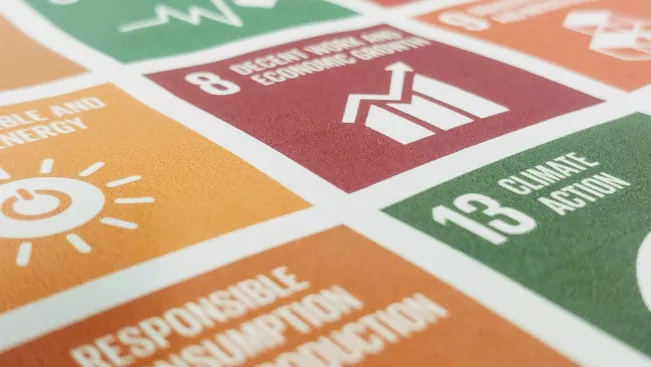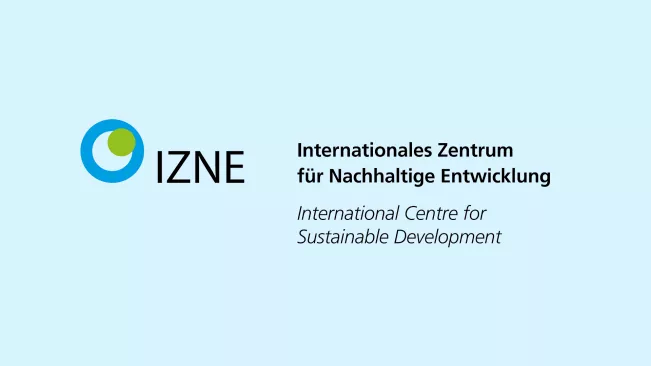International Centre for Sustainable Development (IZNE)
The IZNE as part of the sustainability network

Agenda 2030 promotes sustainability in three dimensions
The strategic starting point for the work of the International Centre for Sustainable Development (IZNE) is the orientation towards the UN Sustainable Development Goals (SDGs). The 17 Sustainable Development Goals (SDGs) form the core of the 2030 Agenda for Sustainable Development, which was adopted at the United Nations Summit in New York on 25 September 2015. For the first time, the 17 SDGs take equal account of all three dimensions of sustainability: social, environmental and economic.
„"We can be the first generation to succeed in eradicating poverty, just as we could be the last to have the chance to save our planet."”
Ban-Ki Moon, UN Secretary-General from 2007 to 2016
The IZNE is a member of the German Sustainable Development Solutions Network (SDSN Germany) and thus contributes to promoting sustainable development in Germany and German commitment to sustainable development worldwide.
Voluntary commitment is indispensable for sustainable development
However, without the commitment of civil society - be it in clubs, associations, citizens' initiatives or social movements - it will not be possible to successfully realise the specified goals. Each and every individual can make a contribution to the sustainable development of the world through conscious decisions.With the study of responsibility, the Centre for Ethics and Responsibility (ZEV) in cooperation with the International Centre for Sustainable Development (IZNE) offers all students at Bonn-Rhein-Sieg University of Applied Sciences the opportunity to deal with current social, ecological and digital change processes in a practical and application-oriented way.
The Responsibility degree programme adds the key topics of ethics, responsibility and sustainability to students' own studies and provides them with a wide range of skills that they can use to reflect on and advance discourse and developments. Continuous interdisciplinary exchange with students from other subject areas plays a central role in this.




